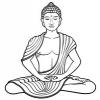Sign in to follow this
Followers
0

Is Dzogchen about cultivation? Or should the teachings just not exist.
By
MooNiNite, in Buddhist Discussion

By
MooNiNite, in Buddhist Discussion